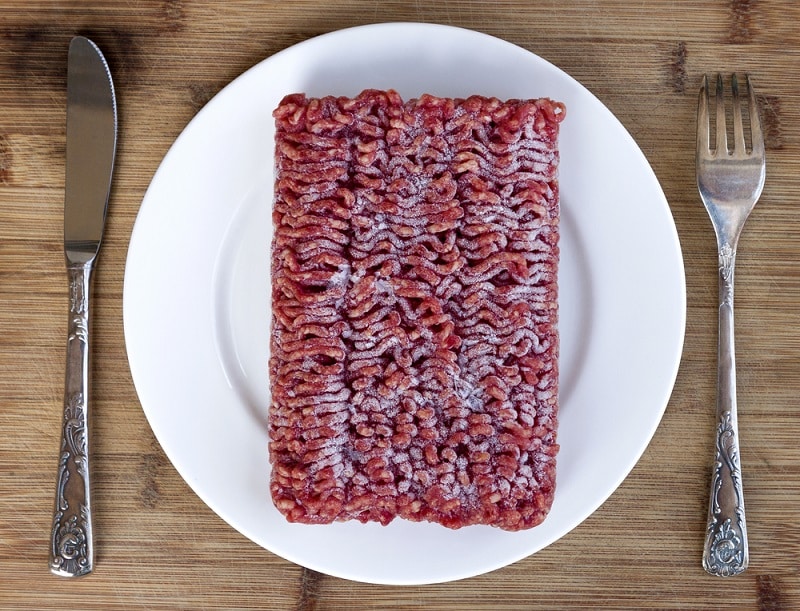
Freezing is a great way to keep perishable foods like meat, vegetables, and baked goods edible for many months. For example, you can keep processed meats for 2 months, cheese for 6 months, and ground beef for 6 months. You can freeze whole pieces of meat like roasts for as much as a year!
You may have noticed that sometimes that packet of ground beef stored inside your freezer may change color from a pinkish-red to a greyish-brown. Is it still safe to eat, and what causes this?
Ground Beef Turns Brown in Freezer
Why has my frozen ground beef changed color?
Most of the meat’s color comes from a pigment called myoglobin. Its job is to store the oxygen that the body brings to the muscle for when it is needed, such as when the muscle needs to work. Muscles that move more have more myoglobin, which is why chicken thighs are a darker color than chicken breasts, for instance.
Exposing meat to oxygen results in a bright red color – something we see when we purchase PVC-wrapped beef from the store. Sometimes the meat on top is brighter red than the meat in the center, which is brownish.
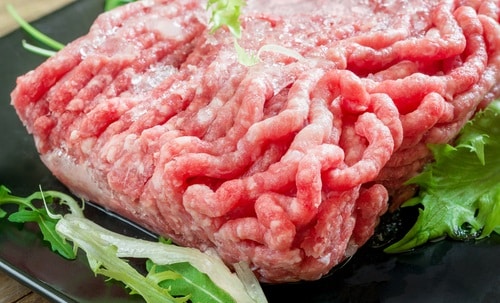
This doesn’t mean that your butcher has tricked you by layering fresh meat over old beef. No, it simply means that the meat on the outside is exposed to oxygen while the meat in the middle is not. This is why your fresh ground beef loses some color in a few hours after you vacuum pack it or seal it properly.
Is brown meat bad?
For your ground meat to remain safe to eat, there are a few things to bear in mind before freezing.
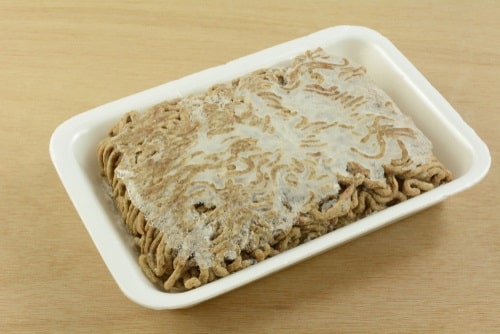
- Ground beef stored at room temperature for more than two hours activates harmful bacterias. So, it is essential to place your ground beef inside a fridge or a freezer before the two-hour time limit.
Take a cooler along to the store with you with a few ice blocks inside. Transfer the meat into this as soon as you leave the store. - Refrigerating ground beef for more than 2 days is also a health hazard. Only by transferring it into a freezer before the 48-hour time limit is up will keep it safely fresh for later consumption.
Suppose your meat was fresh when you bought it and was kept cold according to these conditions. In that case, you can safely assume that your meat is not rotten even though it has changed color because freezing your ground beef at below 0 degrees Celsius inactivates the harmful bacteria. As a result, frozen foods are not susceptible to spoilage even after a long storing period.
However, if you’re not entirely sure about your frozen ground meat meeting all the safety requirements, there are three ways to check if it’s edible or not.
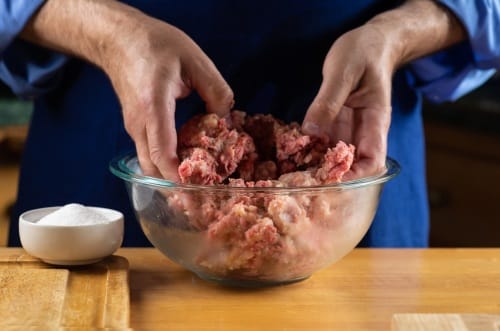
- If your frozen ground meat is 100 percent brown with not a single speck of red, then you must perform a thorough check before cooking it. (When you cook it, it must reach above 90 degrees Celsius.)
- The next step after noticing a brown color throughout is to smell the meat. Even though food-borne bacteria like Salmonella and E. Coli are odorless, smelling your meat is still a viable way to tell if it’s spoiled or not. If it smells unpleasant, then it is best to discard it.
- Touching your ground meat after defrosting will also act as an indicator. A good, unspoiled, raw ground meat should have a grainy texture, whereas spoilt ground meat will have an unpleasantly slimy texture.
- If you are at all unsure, it is best to throw it away. Rather lose a few dollars worth of meat and be healthy than eat rotten meat and end up in the hospital with food poisoning.
How to freeze your meat correctly.
Aside from freezing your ground meat in time, you also need to follow proper USDA-approved procedures if you want your ground meat to taste good and remain safe to eat for more extended periods.
- To avoid frost burn with its accompanying dehydration of the meat, pack your ground meat into a plastic bag, and using a vacuum sealer, make sure no air is left inside the bag. If you don’t have a vacuum sealer, press out as much air as you can before sealing.
- The faster you freeze your ground meat, the more flavor it will retain.
- Remember to label the meat clearly with what is inside the package and the date it was frozen.
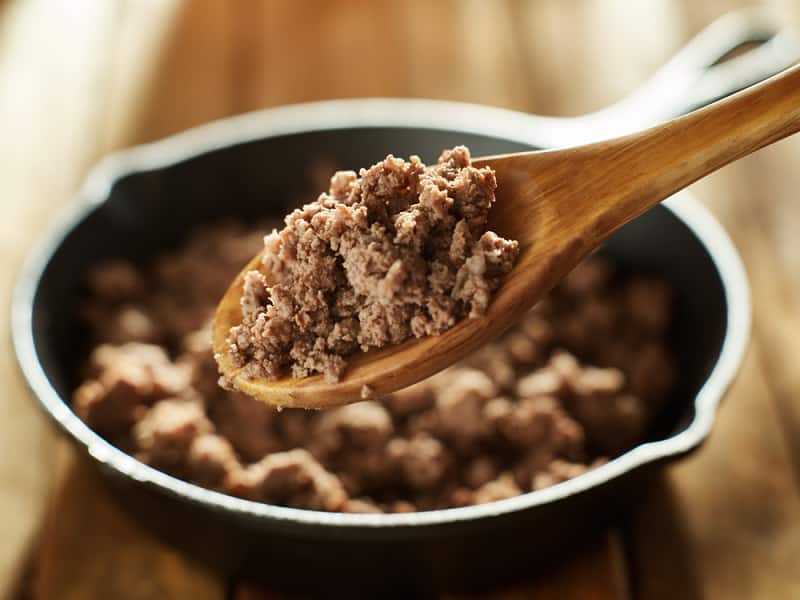
Conclusion
We hope this article sets your mind at ease. Remember, just because your minced meat is brown does not mean that it is bad.